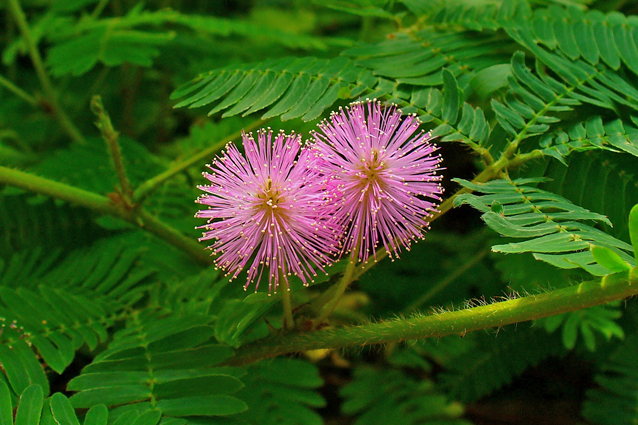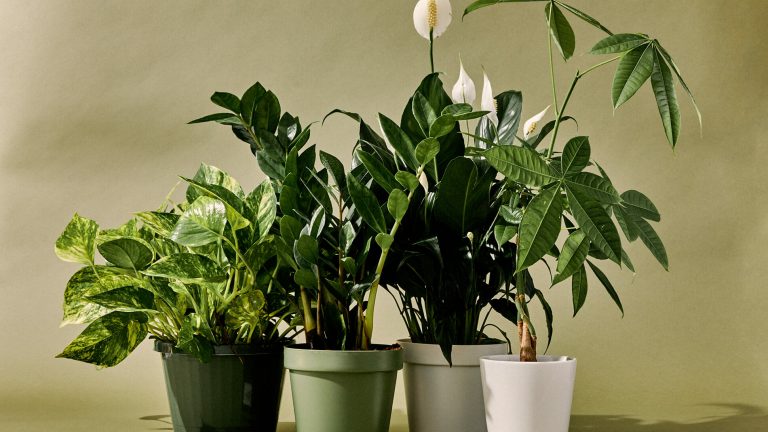Well-known physiologists published an article in a prestigious scientific journal stating that plants have no consciousness. What prompted them to take this desperate step?

Unpleasant things sometimes happen to scientific ideas: they become too obvious. In the end, they just stop talking about them. It would not be a problem, but there is always somewhere else an alternative opinion (what to call an opinion alternative to the obvious? Nonsense? Yes, for example, let’s call it nonsense), which someone will express.
What for? For example, in order to expand the horizons of science, to free oneself from stereotypes, to open people’s eyes to the complexity of the world, its beauty and perfection – you never know in the world of good and noble motives to carry nonsense. And there is an obvious truth at the exit, which no one talks about anymore, and some nonsense, which they suddenly start talking more and more about. And here someone needs to rush into the embrasure and once again loudly and selflessly pronounce the banality. Because banality is true, and its original alternative is complete rubbish.
It was in this position that Lincoln Thais, a well-known plant physiologist and author of the world-famous textbook on this discipline, turned out to be. He explains his impulse as follows: he, as the author, is asked why there is nothing about “plant neurobiology” in his textbook? And now the situation has gone so far that he can no longer simply say: “Because plants do not have any neurobiology.” He has to write a lengthy article about this . By the way, it’s interesting, we advise you to read it. But if laziness, read at least this small note.
The origin of nonsense
Plant Neurobiology dates back to a 2006 scientific review by Eric Brenner and triumphed in December 2013 in the form of an article by Michael Pollan in The New Yorker entitled Intelligent Plant. The word “intelligence” here, of course, does not mean high spirit ups, but simply the ability to perceive and analyze information, approximately as in the phrase “artificial intelligence” or “machine intelligence”. Of course, any living cell perceives information from the outside world and somehow changes its vital activity in response, but adherents of plant neurobiology clearly hint at something more.
What, for example? Here are a couple of instructive cases.
1. Mimosa gets used to the bad
Mimosa is bashful that from the legume family, she can fold leaves in response to mechanical stress. This is not a reason to endow it with “memory and intelligence,” as National Geographic did . And the reason is this: if you shake the mimosa leaf, it will close. If you shake again, it will close again, but not so willingly. If you shake it regularly, it will stop closing. Maybe mimosa simply exhausted strength? No: if you now drop the sheet onto the floor, it will close again.
Such experiments were described in 2014 by Monica Galliano, who soon became one of the media stars on the topic “Plants can think, but do not explain how.” Its interpretation is obvious: the sheet simply remembers: “Shaking is not scary,” that is, in our opinion, it gets used and calms down. But a new type of exposure again scares the poor plant. The fact that a repeated effect blunts the reflex was written by physiologist Pavlov. But they were dogs. So, mimosa is almost like a dog.
And so Professor Thais and his co-authors are forced to remind : no memory, much less reason, is needed to explain these experiments. Just throwing it on the floor is more mechanical stress than just shaking it. It can give a signal for tissue swelling on one side of the sheet (which ensures curling) when the signal from shaking is no longer enough.
2. Conditioned reflexes in peas
Since we remembered Academician Pavlov, we must mention the conditioned reflexes. For example, peas. Galliano discovered the “conditioned reflexes” in him in 2016: she grew a plant in a tube in the form of the letter Y and looked at which branch it would reach. The LED light was used as the “unconditional” stimulus, and the “conditional” was the breeze coming from the fan. When the light was turned off and the fan was left to no one needed, 65% of the plants grew in its direction – that is, to where, as they remember, there was once light.
And again, the good authors of our article are forced to give a bunch of evidence why these experiments (which, incidentally, were not very well reproduced) should be interpreted with caution. A lot of what looks like consciousness from the outside is not really it, and the presence of intelligence in peas should be proved a little more carefully (the authors cite the famous quote from Karl Sagan : “Extraordinary statements require extraordinary evidence.” Recall, by the way, that and in the case of a dog, the story of “conditioned reflexes” was never considered evidence of rationality – and Pavlov himself received his Nobel for “physiology of digestion”, to which area of science his experiments were classified. His dogs were “reasonable” or much later. ”Pea, probably, is worth patience for now.
Why plants have no consciousness
The answer of the authors of the article consists of two parts: a) because they do not need it for anything, and b) because they have nothing for this.
The first part: the plant has absolutely nothing to think about. The brain is a very expensive organ, it consumes a lot of energy and nutrients, develops slowly, requires sleep, etc. Our survival strategy is such that we are prepared to take these losses. This strategy involves every minute choice: to stand or run, right or left, food or sex, sometimes even good or evil. The plant practically does not need to choose anything: it can only grow or not grow, at best, pour a little bit of tissue juice on the shadow side of the stem, so that the head of the sunflower turns after the sun.
When they say to you with condemnation that you turn from laziness and vodka into a plant (into a vegetable, into ficus, etc.), most likely the interlocutor will keep in mind that you are evading a moral choice or not acting on the basis of a choice previously committed and declared. For a plant, this is natural: no matter what choice it makes, it will not affect its life and growth. Because a vegetable is a vegetable, and he is not offended by this.
The second part of the answer: the nervous system and especially the brain is an awfully complex squiggle. “Complex” in the mathematical sense: a lot of connections between elements. Apparently, for what is called “consciousness”, this is absolutely necessary. The theoretical basis of this assertion was recently disassembled in bones in an article by Todd Feinberg and John Malatt. Their conclusion is that: of all life on the planet, “consciousness” (in the rational everyday sense of the word) can, in principle, exist in vertebrates, including a respected reader, mollusks and arthropods. And that’s all. The rest simply do not have a sufficiently complicated place where it could fit.
And the last caveat: people like to be proud of their “complexity”, but in nature they don’t give a medal for “complexity”. She is given for a successful survival strategy. In plants, it is so successful that these creatures make up 4/5 of the entire living biomass of the planet. There are 500 times more trees on earth than people. The fact that they do not need to think for this – and we need to desperately – is still unknown whose problem.
Good motivations that gave birth to nonsense
Lincoln Thais is a plant physiologist, and it happened because he loves plants. He is generally a kind person and far from publicly making fun of Monica Galliano, who discovered the memory of mimosa, or Eric Brenner, who introduced the term “plant neurobiology”. He is trying to understand their motives.
And their motives are noble. They are just offended when plants – yes, they also love plants – are regarded by some as soulless machines. This means that they do not have to be protected and protected, but it is possible to cut down forests and destroy biocenoses. Such evil creatures are these Homo sapiens that they cannot relate to something humanly if it is something unlike them. So, in order to save the biosphere of the planet, a little anthropomorphism must be allowed into scientific concepts. Plant neurobiology is very helpful here.
Incidentally, Karl Linnaeus, who also loved plants, described the process of double fertilization in flowering as follows: “Petals of a flower do nothing for reproduction, serving only as a marriage bed, which the great Creator so nicely arranged, adorned with noble materials and covered with so many sweet aromas, so that the Bridegroom can perform the sacrament of marriage with the Bride in the greatest triumph. When the bed is removed, the time for the Bridegroom to accept the Bride and bring her her gifts ” ( quote from the article by L. Thais and others in the author’s translation). A little pathos and exaggeration is normal for enthusiastic people, that’s what we want to say here.
Monica Galliano is also expressed sublimely , albeit in the style of her century:
<Debate about the presence of consciousness in animals> “has recently been extended to plants, and as experimental evidence of the presence of cognitive abilities in plants accumulates, it becomes impossible to ignore the controversial and even taboo ethical issues of their well-being and moral responsibility to them.”
In general, Monica Galliano just wants us to be kinder to plants. All her experiments are for the sake of it.
And here Lincoln Thais is in a difficult position:
“Is it necessary to attribute consciousness to plants – regardless of whether they have it or not – as psychological tactics to convince the general public of the urgent need to preserve the biosphere? If this is so, we are faced with an unacceptable choice: whether to accept a lie for the sake of spreading environmental awareness, or adhere to objective truth, while humanity rushes to an environmental disaster. ”
The conclusion of Professor Thais is this: “We object to believing that plants have consciousness, intentions or reason as a matter of our moral choice. Scientific knowledge only requires that we strive for truth. ”
For our part, we are glad that everything ended so well. We have a lot of ethical issues here, and sometimes you just want to cut a tomato, cut a hazel or dig a horseradish without all this nonsense. Well, because plants don’t feel anything, as everyone has known for a long time.

